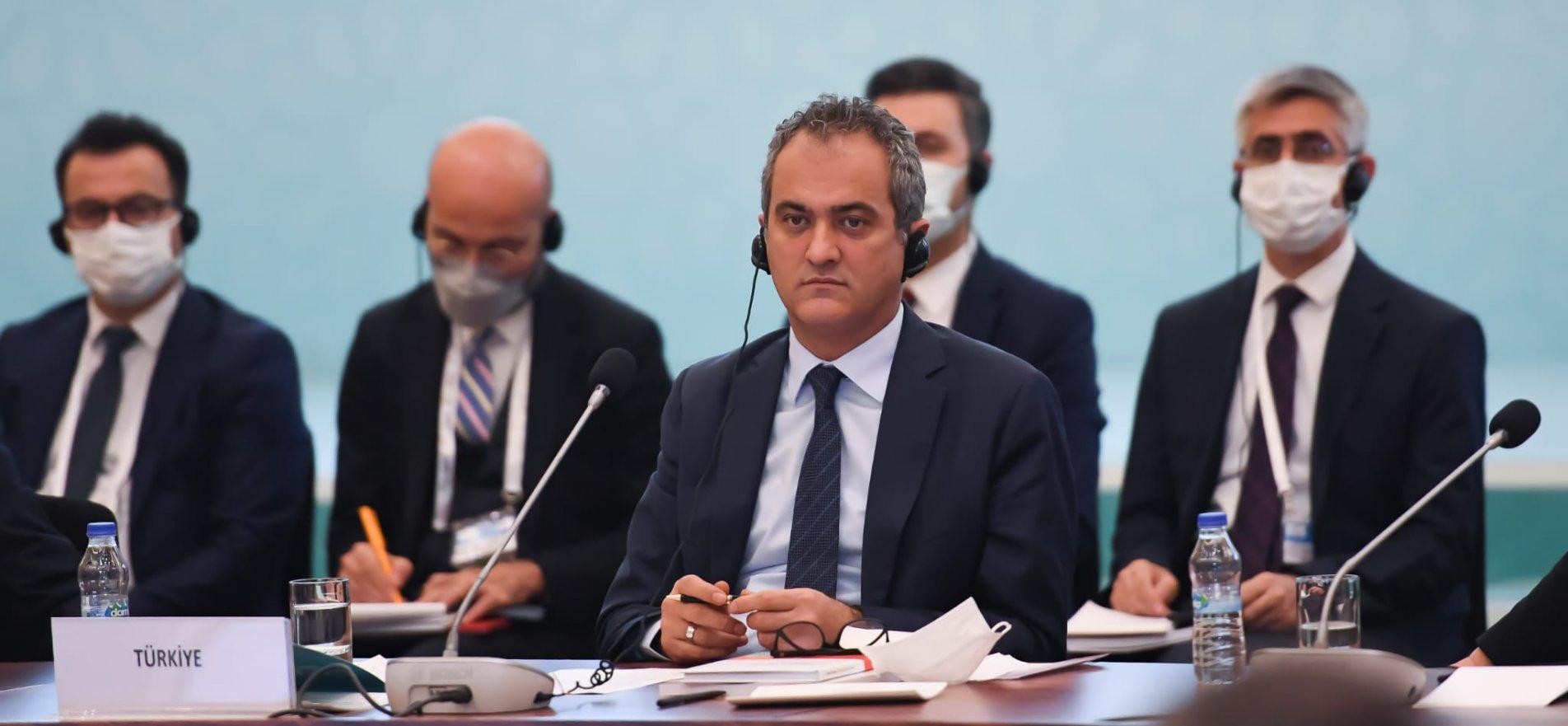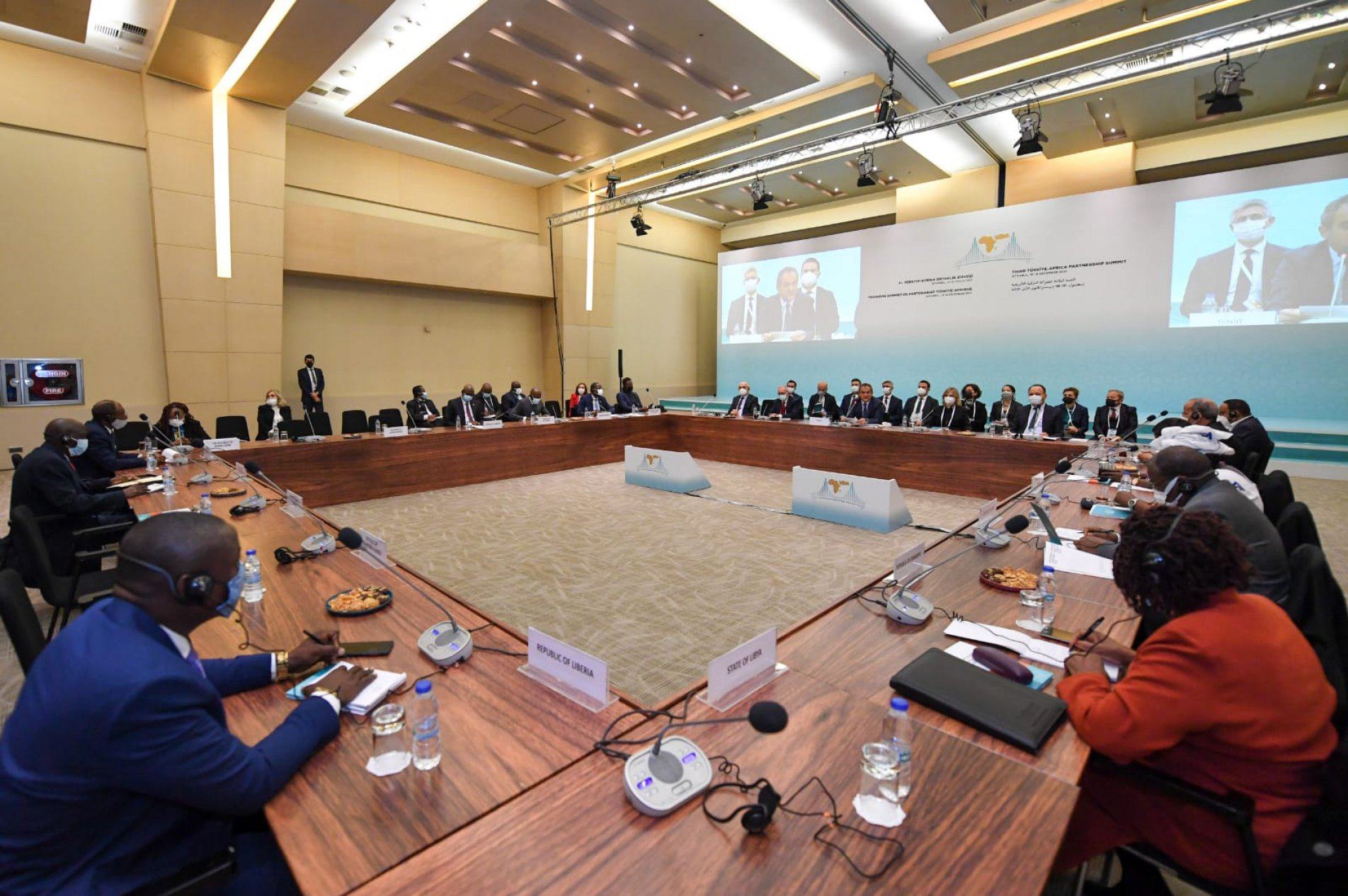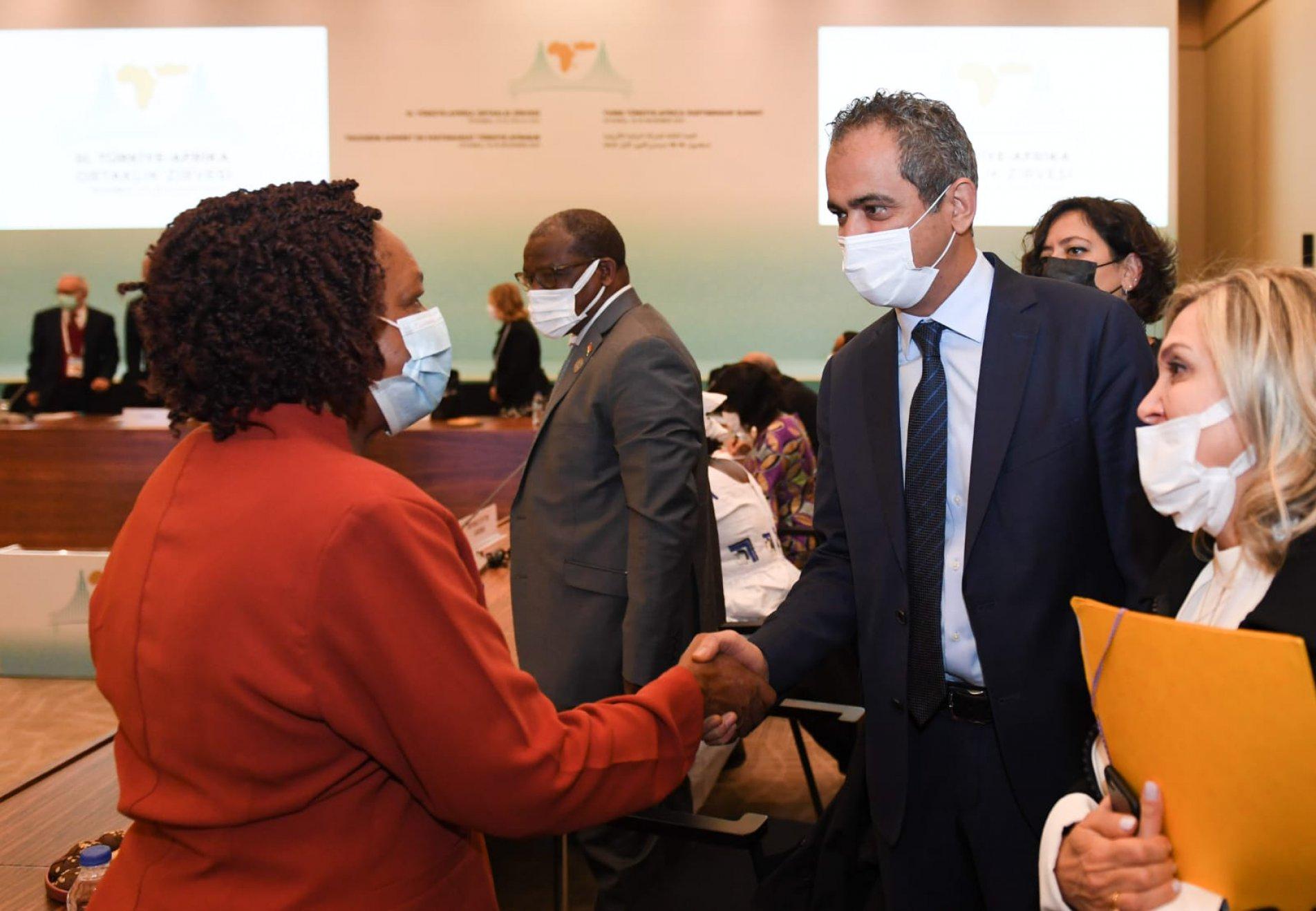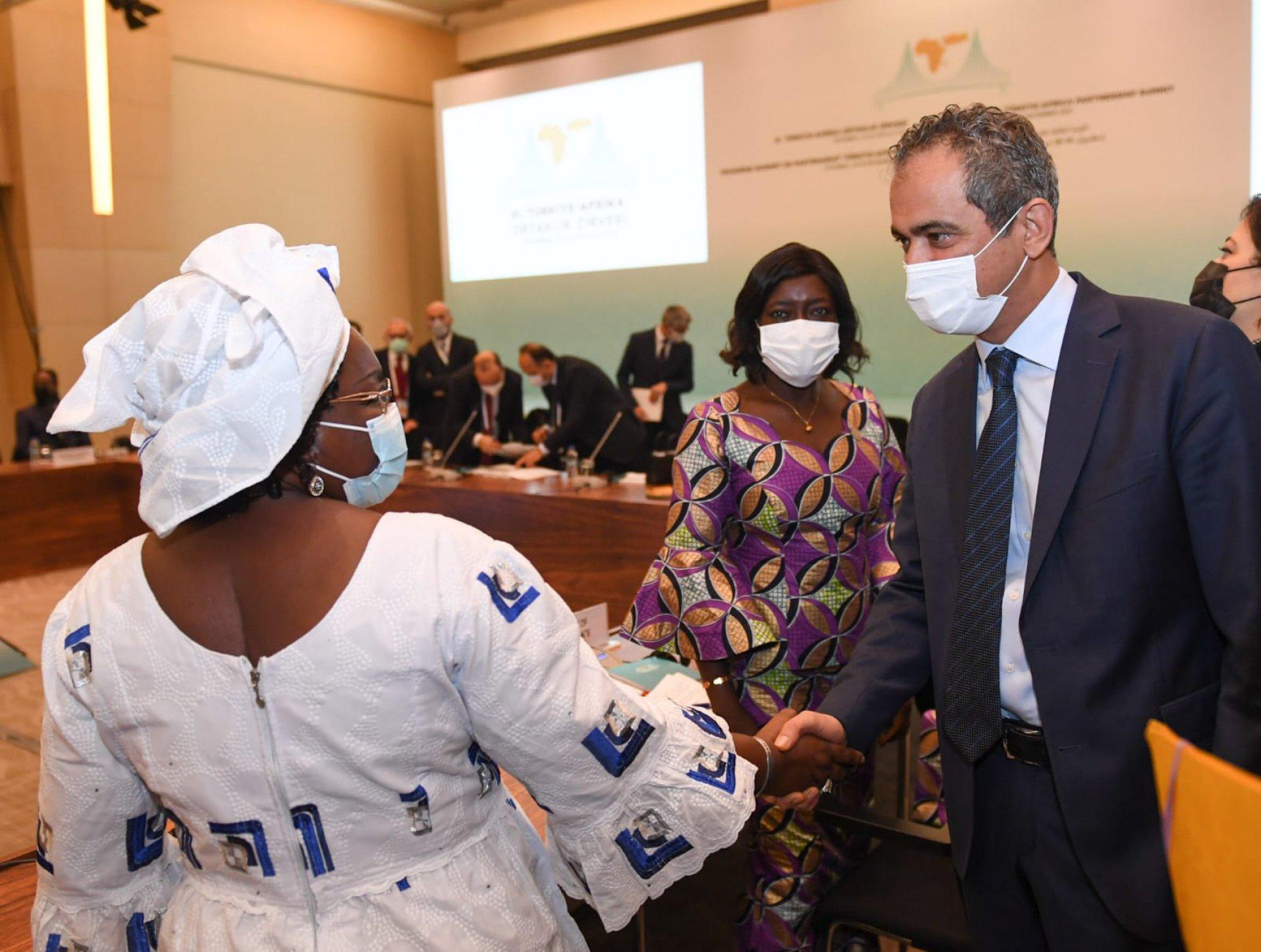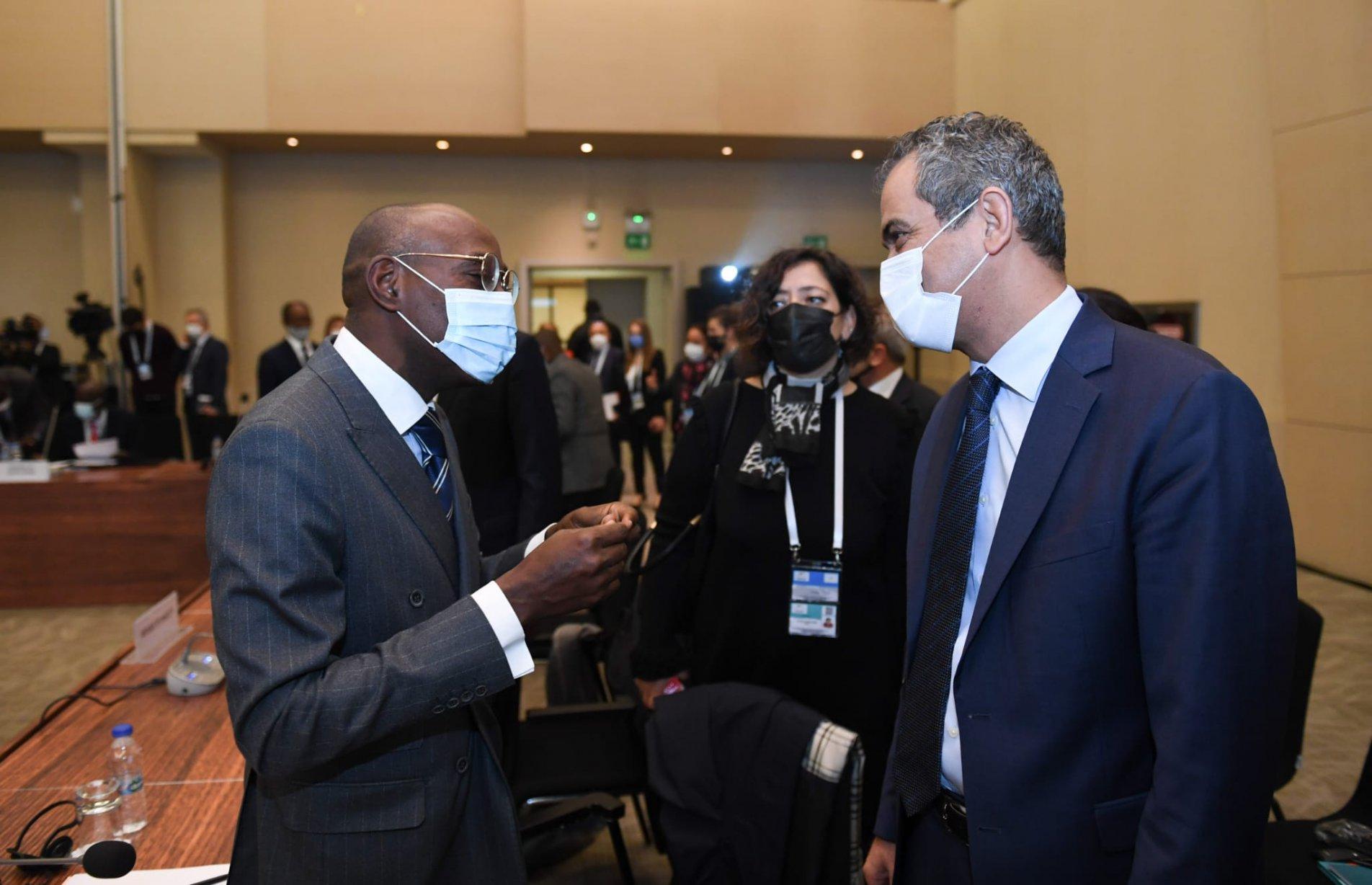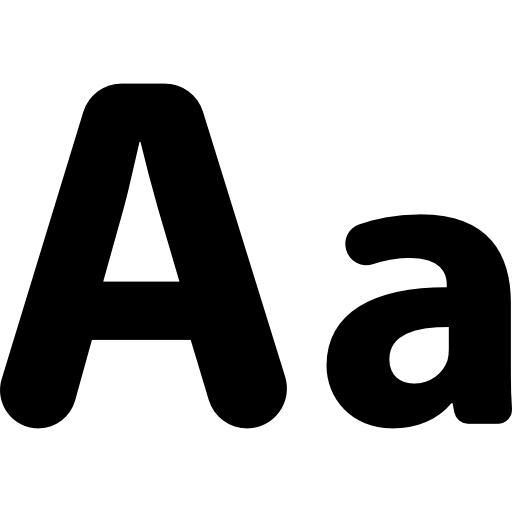3rd Turkey-Africa Partnership Summit continued with sessions organized on its second day.
Minister of National Education Mahmut Özer and his African counterparts got together in a session at the summit organized at the İstanbul Congress Center under the theme "Enhanced Partnership for Common Development and Prosperity" and signed education agreements.
Minister Özer said during his speech at the summit that cooperation agreements about education with African countries will provide a productive and solid base for a common future adding that, "We always prioritize making agreements in order to sustain legal cooperation with African countries. As a part of our Africa Initiative Policy, we have signed a total of 82 agreements with 40 African countries and negotiations still continue with 22 countries for new agreements."
Noting that friendship and brotherhood ties with Africa go back to hundreds of years, Özer expressed his belief that the summit will reinforce amicable relations and form the basis of future cooperation opportunities.
Özer said that the Africa Initiative Policy was announced by President Recep Tayyip Erdoğan in 2005 which was declared as the year of Africa and carried bilateral relations to a new stage which is compatible with the realities of the 21st century.
Within the framework of this policy, important developments in many fields varying from development partnerships to political dialogue mechanisms, from cultural and education activities to economic cooperation agreements and from commercial investments to transportation infrastructures were achieved.
Stressing that education is among the most important instruments for socioeconomic development and sustainable peace and welfare environment, Özer said, "Our goal is to raise successful, good and well-mannered individuals by equipping young generations with 21st century skills. Our goal is to develop our country and leave a better world for younger generations. Within this context, we prioritize cooperation agreements in education with African countries. We believe that education cooperation agreements will provide a productive and solid base for the future design."
Reflection of Africa Initiative Policy to education
"As a part of Africa Initiative Police in education, we currently have representative offices in 14 African countries and three of them are active. Others will be activated soon. We want to increase the number of these offices. One of our Ministry's international activities is the international Imam Hatip Anatolia High Schools. Students from different countries of the world are enrolled in these schools which provide science, social science and basic Islamic science lessons. These schools contribute to raising the quality of human resources in religious education, religious services and other professions for Muslim countries and communities. Since 2010, 401 African students graduated from these schools and currently there are a total of 501 students from 42 African countries who are studying in Imam Hatip Anatolia Schools," said Özer.
Noting that Turkey is popular among African university students, Özer stated that approximately 16 of each 100 foreign students enrolled in universities in Turkey are from African countries and more than 4 thousand students from 51 African countries benefit from Turkish scholarship programs for their graduate, post-graduate and language education.
Özer said that the Ministry of National Education has been carrying out "International Sister School Project" with 18 schools from 12 African countries in an effort to maintain interaction between schools from different countries, establish communication channels between students and organize joint social and cultural activities.
Cooperation in fight against FETÖ and Turkish Maarif Foundation
Özer pointed out that FETÖ has attempted to stage a coup on July 15 adding that it is very important to cooperate against the terror organization for the future of children and countries.
Mentioning that African countries have supported Turkey during this process, Özer said, "Many African countries closed down schools linked with FETÖ or transferred them to the Turkish Maarif Foundation. Currently, the Turkish Maarif Foundation has total of 186 education institutions in 25 African countries and 20 thousand students are enrolled in these institutions. Moreover, 3 thousand and 183 Africans are working in the Turkish Maarif Foundations located in Africa."
Özer stressed that there has been rapid changes in information and communication technologies in the 21st century while the world has been witnessing climate change, natural disasters, wars, immigrations and finally the pandemic.
"The pandemic affected education. Face-to-face education was simultaneously suspended in the entire world. Even though every country tried to carry out the education process but unequal opportunity in education deepened during this process. This is one of the most important dangers in education. We are aware that African countries were affected the most. The goal of education policies must be based on fulfilling the gap caused because of the pandemic, overcoming learning loss and providing psychosocial support. Under these circumstances, strong cooperation between countries is essential for the reinforcement of the education system," said Özer.
Vocational education during Covid-19 pandemic
Özer noted that Turkey and African countries have the advantage of having a young and dynamic population and vocational education is important for increasing the quality of human capital and teaching vocational skills to younger generations.
Pointing out that Turkey recently took important successful steps in vocational and technical education in order to respond to the transition in the labor market and increase the quality of the education process, Özer said: "We have reinforced education- production- employment cycle and expand cooperation with the private sector. We have updated school programs according to the changing technology and respond to the quality needs of the labor force. Moreover, our vocational high schools played an active role since the beginning of the pandemic by producing most needed products varying from masks to disinfectants, from face shields to disposable aprons, from ventilators to mask machines. We have founded R&D centers at vocational schools and organized training programs about intellectual and industrial property rights."
He added that his Ministry is ready to share information and experience with African countries.
Djibouti's Minister of National Education and Vocational Training Moustapha Mohamed Mahamoud, Ivory Coast's Minister of National Education and Literacy Mariatou Kone, Gabon's Minister of National Education and Higher Education Patrick Mouguiama Daouda, Gambia's Minister of Basic and Secondary Education Claudiana Cole, Guinea-Bissau's Minister of National Education and Higher Education Cirilo Mama Saliu Djalo, Congo's Minister of Primary and Secondary Education and Literacy Jean Luc Mouthou, Congo Democratic Republic's Minister of Primary, Secondary and Technical Education Tony Mwaba Kazad, Libya national unity government's Minister of Education Musa El-Magrif, Mauritania's Reform Minister in National Education and Education System Mohamed Melainine Eyih, Niger's Minister of National Education Dr. Rabiou Ousmane, Sierra Leone's Minister of Technical and Higher Education Prof. Alpha T. Wurie and Minister of Primary and Secondary Education Dr. David Moinina Sengeh, Somali's Minister of Education, Culture and Higher Education Abdullahi Abukar Haji and Zimbabwe's Minister of Primary and Secondary Education Dr. Evelyn Ndlovu addressed the gathering.
